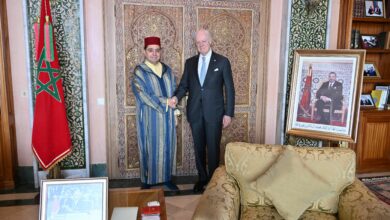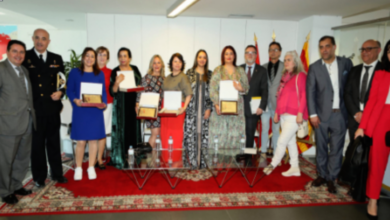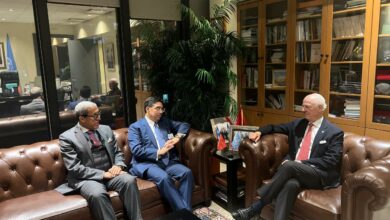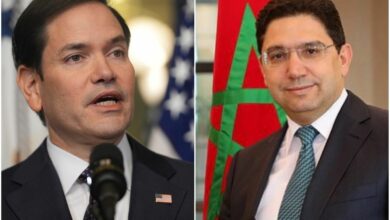King Mohammed VI Renews His Call for Genuine Dialogue with Algeria: A Strategic Vision Facing Algerian Political Deadlock
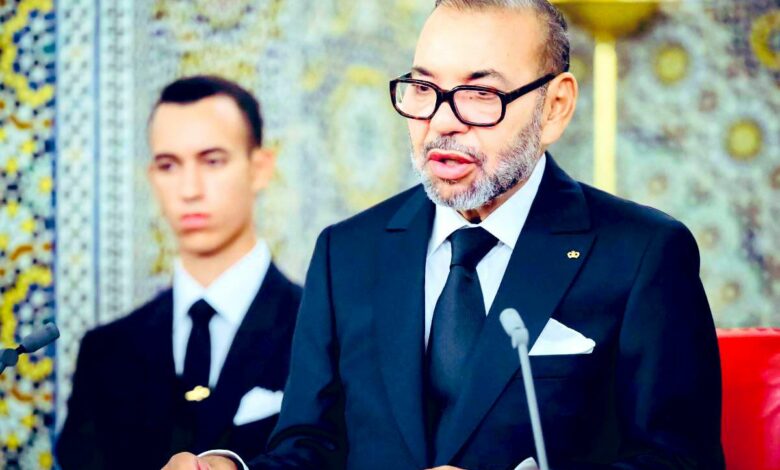
By: Ghita Hafiani | ALDAR
In his Throne Day speech marking the 26th anniversary of his accession to the throne, King Mohammed VI reaffirmed Morocco’s unwavering position on relations with Algeria, emphasizing the Kingdom’s commitment to dialogue and openness—at a time when Algeria’s leadership continues to adopt a policy of denial and escalation, far from the spirit of brotherhood and good neighborliness.
The royal speech was not merely a passing diplomatic wish but a renewed strategic vision rooted in a firm principle: that stability and prosperity in the Maghreb region cannot be achieved without building bridges of trust and cooperation between Morocco and Algeria. This position is not new; it extends a consistent royal approach since the early 2000s, embodied in repeated initiatives to turn the page on manufactured disputes and to favor wisdom and shared interests over hostile tendencies.
The geographical and cultural ties between Morocco and Algeria cannot be overlooked. The two peoples are bound by connections that transcend political borders—bonds of blood, religion, language, and shared history—from joint resistance to colonialism to the common aspiration for genuine regional unity. In his address, King Mohammed VI reiterated this truth, describing the Algerian people as “brothers,” in a message full of respect and appreciation, far removed from any provocation or political exploitation.
In stark contrast, the Algerian regime—led by the ruling military establishment—continues to cling to a hostile narrative built on fabricating external threats and using the “Morocco card” to distract from its own mounting internal crises, from chronic political stagnation to deepening economic and social deterioration.
King Mohammed VI went beyond expressing openness; he called for a “frank and responsible dialogue”—a precise choice of words that outlines a comprehensive vision. This is not a diplomatic maneuver, but a genuine will to resolve outstanding issues within a framework that respects sovereignty and promotes regional stability.
It is important to highlight that this royal call comes at a time of profound regional and global shifts—in energy security, migration, and terrorism—making Maghreb cooperation not a luxury, but a strategic necessity.
Nevertheless, Algeria’s leadership continues to respond to Morocco’s royal overtures with either silence or heightened political and media escalation, reinforcing a diplomatic isolation that the Algerian authorities have chosen deliberately.
The contrast between the Moroccan and Algerian approaches to managing bilateral relations reveals a stark divergence. While Morocco has chosen the path of calm and reason, the Algerian regime persists in fueling tensions—whether through support for separatism or through coordinated hostile campaigns.
Yet this strategy is increasingly falling on deaf ears internationally. The global community is now more aware of the artificial nature of the fabricated dispute over the Moroccan Sahara, and of Algeria’s obstructive role in blocking any realistic political settlement.
This year’s Throne Speech reaffirms the core pillars of Moroccan policy: an outstretched hand, a willingness to engage in dialogue, and full respect for fraternal ties and a shared destiny. At the same time, it holds the Algerian regime accountable for the lost opportunities for Maghreb development and integration—at a time when the region needs wisdom and sound judgment more than ever.
History will record—as it has before—that Morocco has always been the side striving to build bridges, while the other side has chosen a path of demolition and obstruction. Between these two paths, hope remains pinned on a genuine political awakening in Algeria—one that can bring the region back on track and end the era of paralysis and tension.

